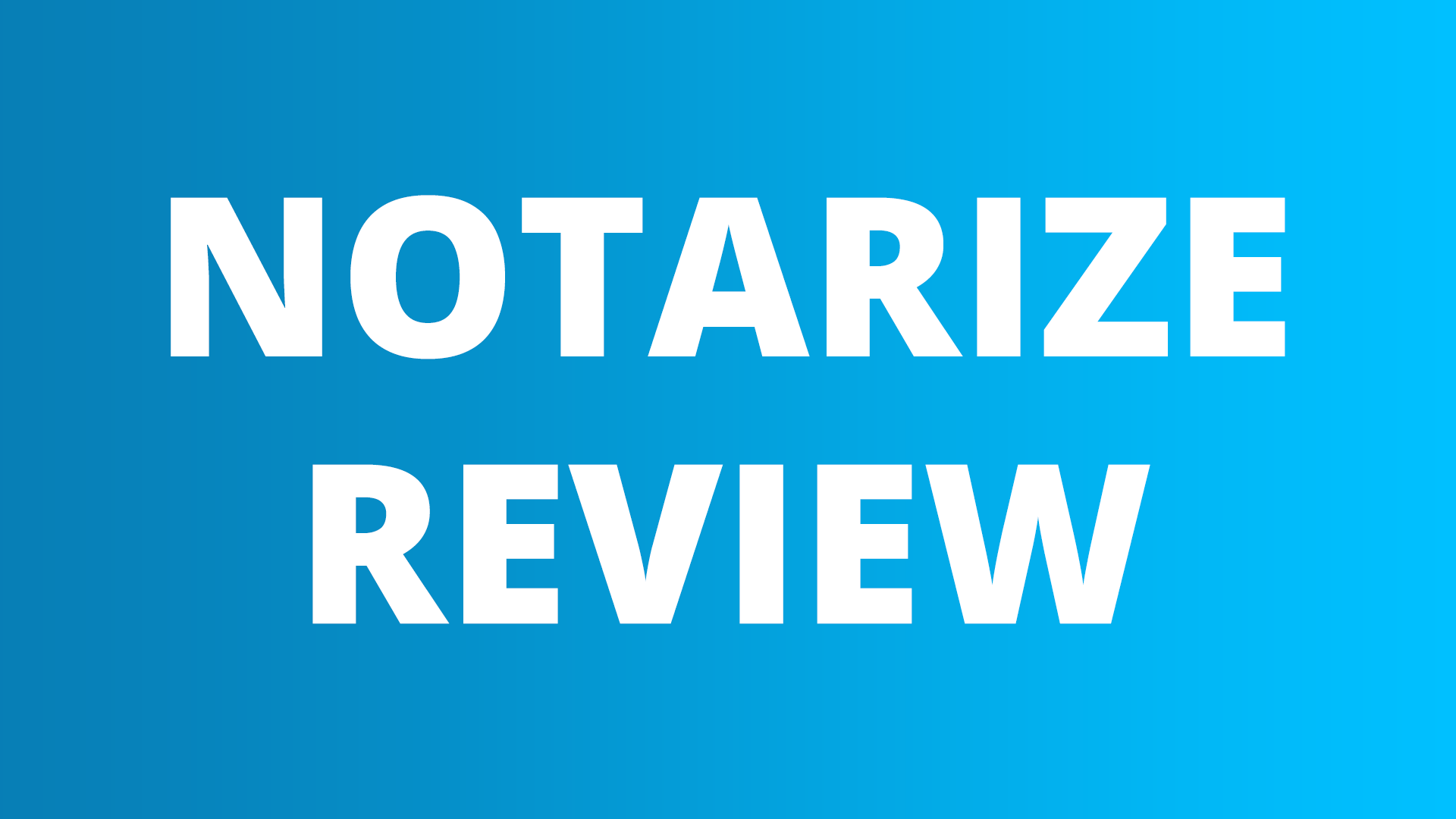In a world where digital transformation is rapidly reshaping traditional processes, Notarize emerges as a groundbreaking solution, revolutionizing the way we authenticate documents. Notarize is an online platform that enables users to legally notarize documents from the comfort of their homes or offices, eliminating the need for physical presence and paperwork. This review delves into the key features, benefits, and potential drawbacks of Notarize, exploring its impact on the notarization landscape.
User-Friendly Interface:
Notarize boasts an intuitively designed user interface, ensuring a seamless experience for both first-time users and seasoned professionals. The platform guides users through the notarization process with clear instructions, making it easy to upload, sign, and notarize documents. The straightforward layout contributes to a stress-free user experience, reducing the learning curve associated with adopting new technologies.
Efficiency and Convenience:
One of Notarize’s most significant advantages is its ability to streamline and expedite the notarization process. Users can upload documents directly to the platform, eliminating the need for physical copies and minimizing the risk of document loss or damage. The convenience of digital notarization becomes particularly apparent when dealing with time-sensitive transactions, as users can obtain notarized documents within minutes, compared to the delays associated with traditional notary services.
Security Measures:
Security is a paramount concern when it comes to legal documents, and Notarize prioritizes this aspect by implementing robust measures to safeguard user data and sensitive information. The platform employs encryption protocols to protect document transmission, and multi-factor authentication ensures that only authorized individuals can access and notarize documents. Notarize’s commitment to security aligns with industry standards, providing users with confidence in the legitimacy and integrity of their notarized documents.
Legal Validity:
One of the primary concerns when transitioning to digital notarization is the legal validity of the documents. Notarize addresses this concern by adhering to the regulations and guidelines set forth by individual states in the United States. The platform complies with the National Mortgage Settlement requirements and the Electronic Signatures in Global and National Commerce Act (ESIGN), ensuring that notarized documents hold the same legal weight as those notarized through traditional means.
Remote Notarization:
Notarize’s most revolutionary feature is its ability to facilitate remote notarization, allowing users to complete the notary process without being physically present. This is particularly valuable in situations where signatories are geographically distant or unable to meet in person. The platform utilizes live audio-video communication to connect users with commissioned notaries, creating a virtual environment that mirrors the traditional notarization process while enhancing accessibility and convenience.
Cost-Efficiency:
Traditional notarization services often come with additional costs, including travel expenses and fees for physical document storage. Notarize eliminates many of these overheads, providing users with a cost-effective alternative. The platform offers transparent pricing models, allowing users to see the fees associated with each notarization upfront. While Notarize does come with a service fee, the overall cost savings in terms of time and resources make it a compelling option for businesses and individuals alike.
Integration Capabilities:
Notarize’s integration capabilities contribute to its versatility and appeal across various industries. The platform integrates seamlessly with popular document management and storage systems, facilitating a smooth workflow for businesses that rely on these tools. This integration ensures that notarized documents can be easily incorporated into existing processes, reducing the need for manual data entry and minimizing disruptions to established workflows.
Customer Support:
Notarize places a strong emphasis on customer support, recognizing the importance of providing assistance when needed. The platform offers various support channels, including live chat, email, and phone support, ensuring that users can access help in the way that suits them best. Notarize’s commitment to customer satisfaction is evident in its responsive support team, which addresses queries and concerns promptly.
Potential Drawbacks:
While Notarize offers numerous advantages, there are potential drawbacks to consider. Some users may have concerns about the digital nature of notarization, especially in industries or regions where traditional methods are deeply ingrained. Additionally, the reliance on internet connectivity may pose challenges in areas with limited or unstable internet access. While Notarize has security measures in place, skeptics may question the platform’s ability to withstand cyber threats, emphasizing the need for ongoing vigilance in the ever-evolving landscape of digital security.
Conclusion:
Notarize stands at the forefront of the digital transformation in the notarization landscape, offering a user-friendly, efficient, and secure platform for remote notarization. Its impact extends beyond individual convenience, addressing the needs of businesses seeking cost-effective, streamlined solutions. As the legal and regulatory landscape continues to adapt to the digital era, Notarize emerges as a powerful tool, redefining how we approach document authentication. While challenges and skeptics exist, Notarize’s commitment to compliance, security, and customer satisfaction positions it as a key player in the future of notarization.
